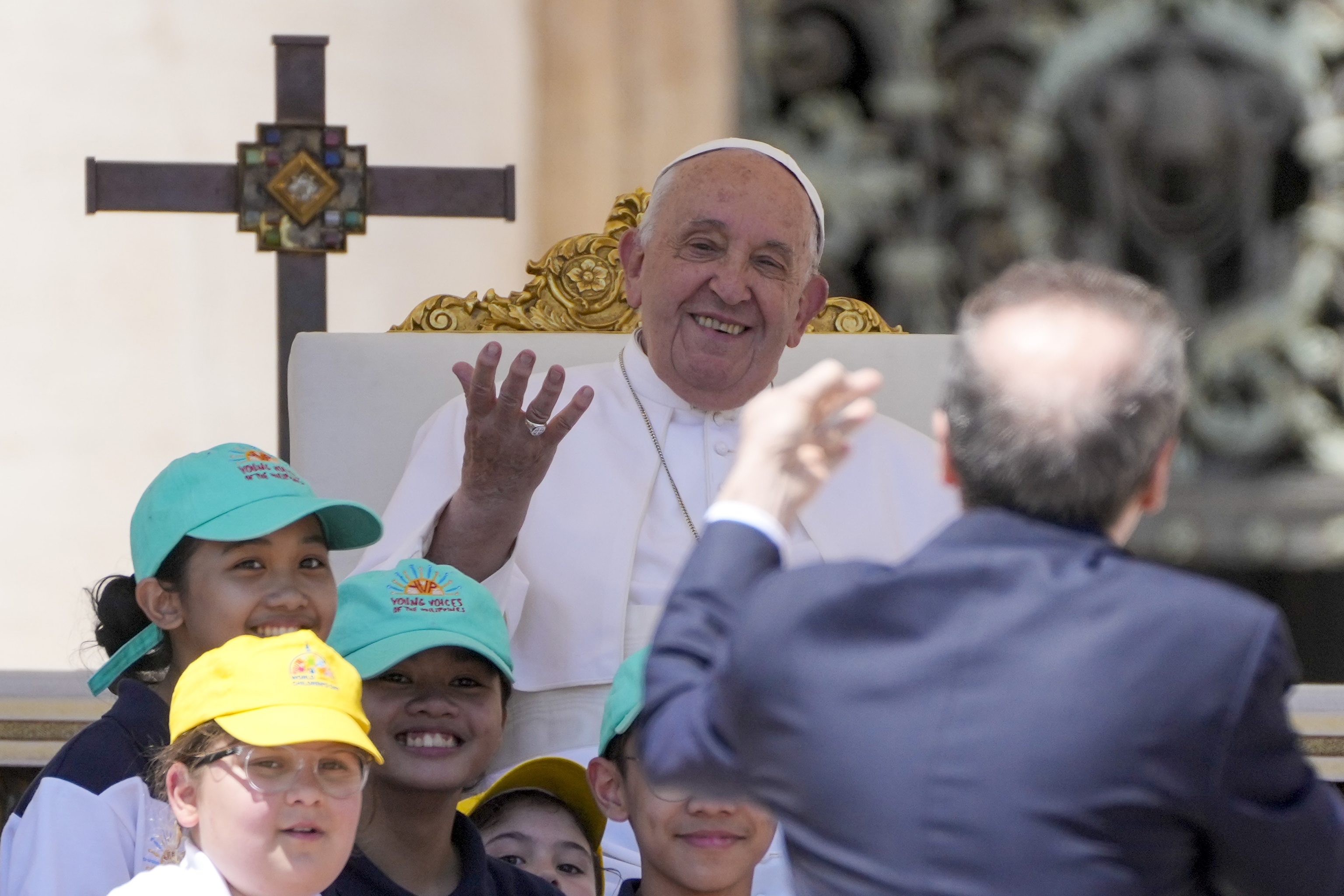Vatican spokesman Matteo Bruni issued a statement acknowledging the media storm that erupted about Francis' comments, which were delivered behind closed doors to Italian bishops on May 20.
Italian media on Monday had quoted unnamed Italian bishops in reporting that Francis jokingly used the term "faggotness" while speaking in Italian during the encounter. He had used the term in reaffirming the Vatican's ban on allowing gay men to enter seminaries and be ordained priests.
Bruni said Francis was aware of the reports and recalled that the Argentine pope, who has made outreach to LGBTQ+ Catholics a hallmark of his papacy, has long insisted there was "room for everyone" in the Catholic Church.
"The pope never intended to offend or express himself in homophobic terms, and he extends his apologies to those who were offended by the use of a term that was reported by others," Bruni said.
Francis was addressing an assembly of the Italian bishops conference, which recently approved a new document outlining training for Italian seminarians. The document, which hasn't been published pending review by the Holy See, reportedly sought to open some wiggle room in the Vatican's absolute ban on gay priests.
The Vatican ban was articulated in a 2005 document from the Congregation for Catholic Education, and later repeated in a subsequent document in 2016, which said the church cannot admit to seminaries or ordain men who "practice homosexuality, present deep-seated homosexual tendencies or support the so-called gay culture."
Francis strongly reaffirmed that position in his May 20 meeting with the Italian bishops, joking that "there is already an air of faggotness" in seminaries, the Italian media reported, after initial reporting from gossip site Dagospia.
Italian is not Francis' mother tongue language, and the Argentine pope has made linguistic gaffes in the past that raised eyebrows. The 87-year-old Argentine pope often speaks informally, jokes using slang and even curses in private.
He has been known for his outreach to LGBTQ+ Catholics, however, starting from his famous "Who am I to judge" comment in 2013 about a priest who purportedly had a gay lover in his past.
